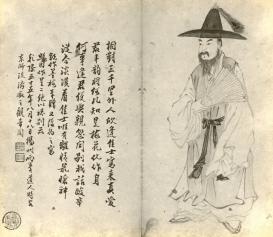Upon returning from his tributary mission to Beijing in 1788, a member of the Korean literati named Pak Chega (1750–1805) drafted a travelogue titled Proposals for the Northern Learning. It devoted most of its entries to in-depth descriptions of Chinese techniques that the author found to be more efficient than their Korean counterparts. Based upon this comparison, Pak advanced a series of reform proposals to transform the lagging Korean society into one of technological sophistication and industrial prosperity. Viewing Pak’s text as a rare example of the “technology policy” proposal for a premodern Confucian state, my project examines how Pak formulated and legitimized his idiosyncratic reform vision—a vision which strongly resembles that of the developmental state in the twentieth century. In Pak’s vision, the technological sophistication of a society was a crucial index of the degree of civilization it had attained; however, a viable model of civilization was not available in his own society and thus was to be sought from elsewhere, ideally from Chinese antiquity but practically from contemporary Qing society. Hence the crucial importance Pak accorded to his own journey to “the north” (Beijing) as a unique source of privileged experiences of the model culture. Ultimately, the government’s top-down initiative, led by a small group of enlightened traveler-reformers, would be crucial to implementing this self-civilizing endeavor. Pak’s reform vision, together with his way of legitimizing it, gradually gained popularity among reform-minded elites in the course of Korean history, although the specific model of technological civilization would change from Qing China to Meiji Japan and eventually to the West.

Pak Chega in Beijing. Drawn in 1790 by a Chinese painter, Luo Pin 羅聘 (1733-1799). Chusa Museum, Gwacheon, Korea.
Project
(2017)
